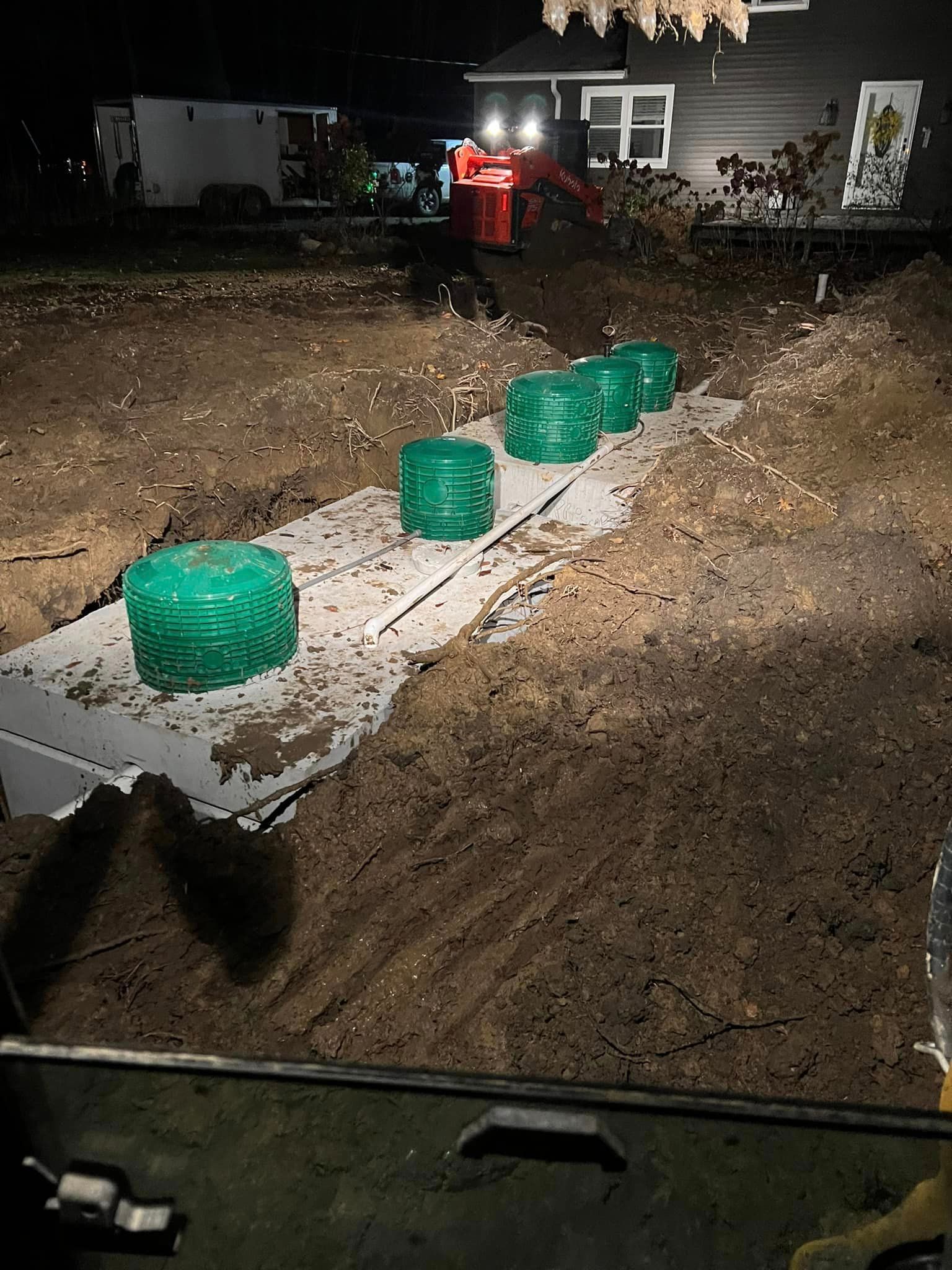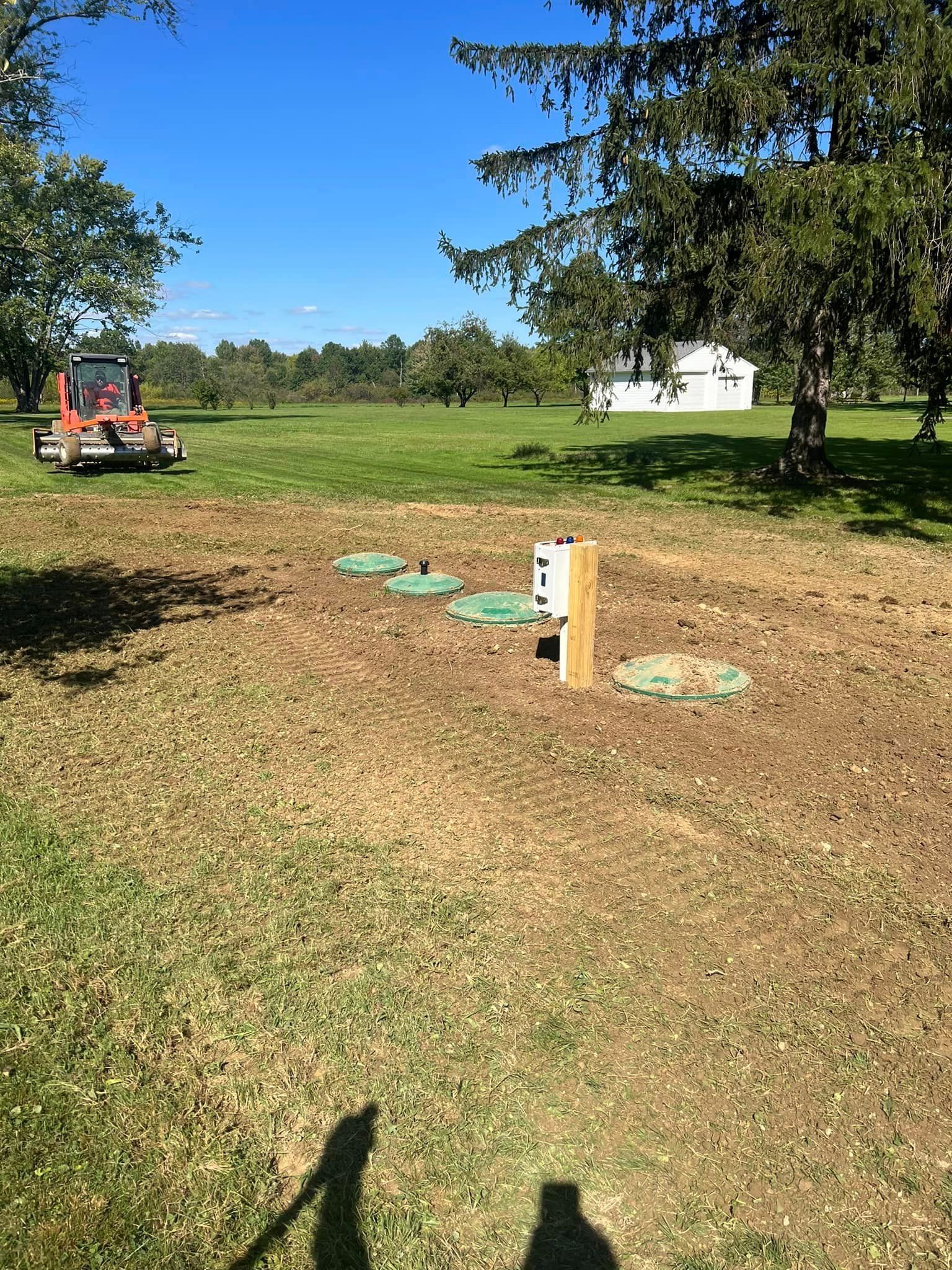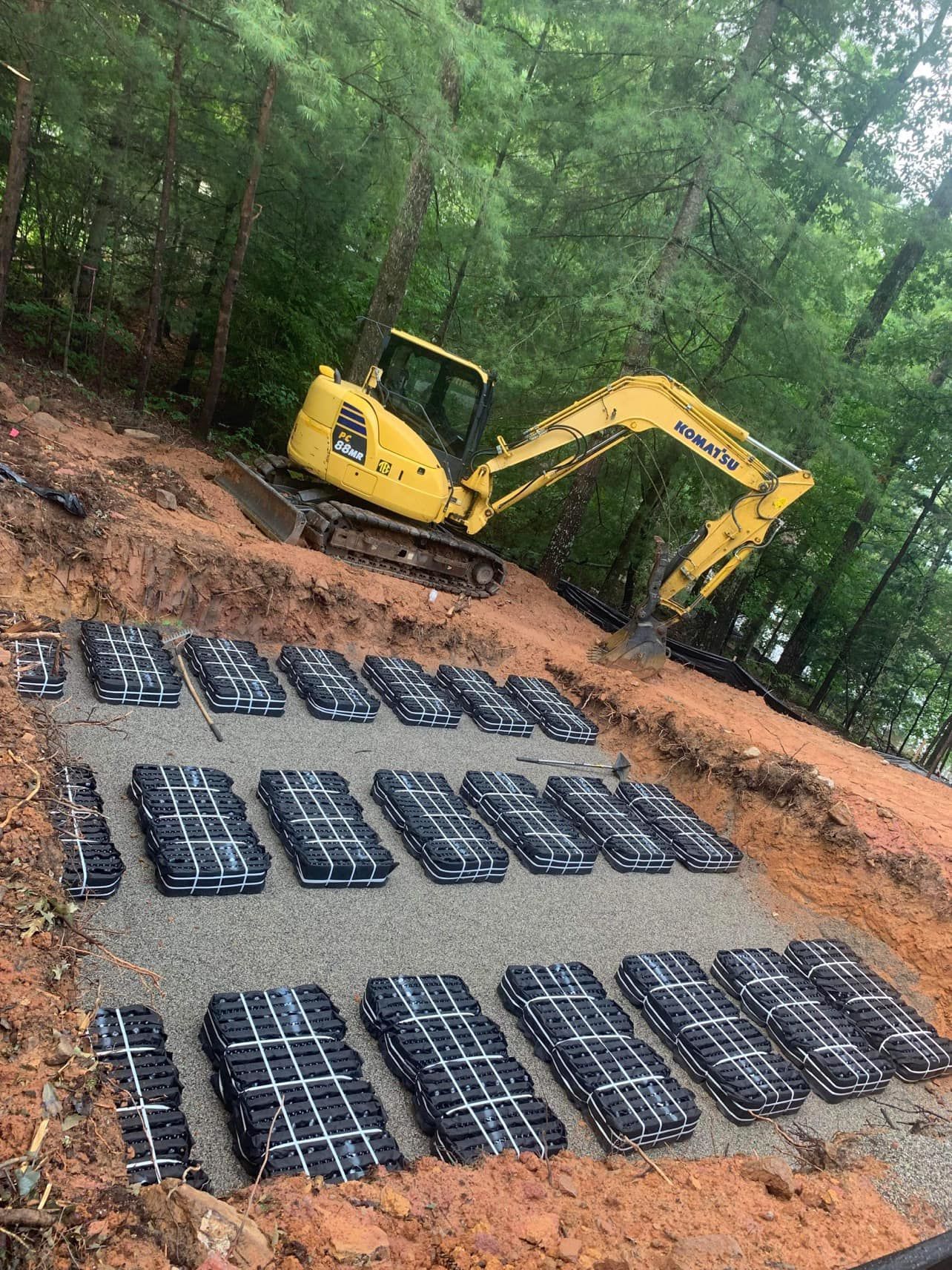Membrane Bioreactors
Membrane Bioreactors Services
At
EWS Septic, we understand the importance of a well-functioning septic system for homeowners. That's why we offer top-notch services, including Membrane Bioreactor (MBR) installations and maintenance. In this section, we will provide you with a comprehensive overview of Membrane Bioreactors. We will also explain their significance in septic systems.
What is a membrane bioreactors?
A Membrane Bioreactor (MBR) integrates biological treatment with membrane filtration, efficiently removing contaminants from wastewater. The technology, employing microorganisms and selective membranes, ensures high-quality effluent. MBRs are known for their space efficiency, flexibility, and reduced sludge production, despite challenges such as initial costs and membrane fouling.
Membrane Bioreactor for Wastewater Treatment
Membrane Bioreactors (MBRs) have become increasingly popular in wastewater treatment processes. This is due to their effectiveness and numerous benefits. In this section, we will explain how MBRs are used in wastewater treatment. We will also highlight the advantages they offer over traditional treatment methods.
However, what sets MBRs apart is the incorporation of membrane filtration. After the biological treatment, the wastewater is passed through a membrane system that acts as a physical barrier. This membrane has microscopic pores. They let clean water molecules pass through. The membrane retains solids, microorganisms, and other contaminants. The result is a high-quality effluent that meets stringent water quality standards.
How Does a Membrane Bioreactor Work?
Membrane Bioreactors (MBRs) combine biological treatment processes with membrane filtration. This combination effectively treats wastewater. In this section, we will provide a step-by-step explanation of the MBR process. We will discuss the crucial role of membranes in separating solids and microorganisms from the treated water.
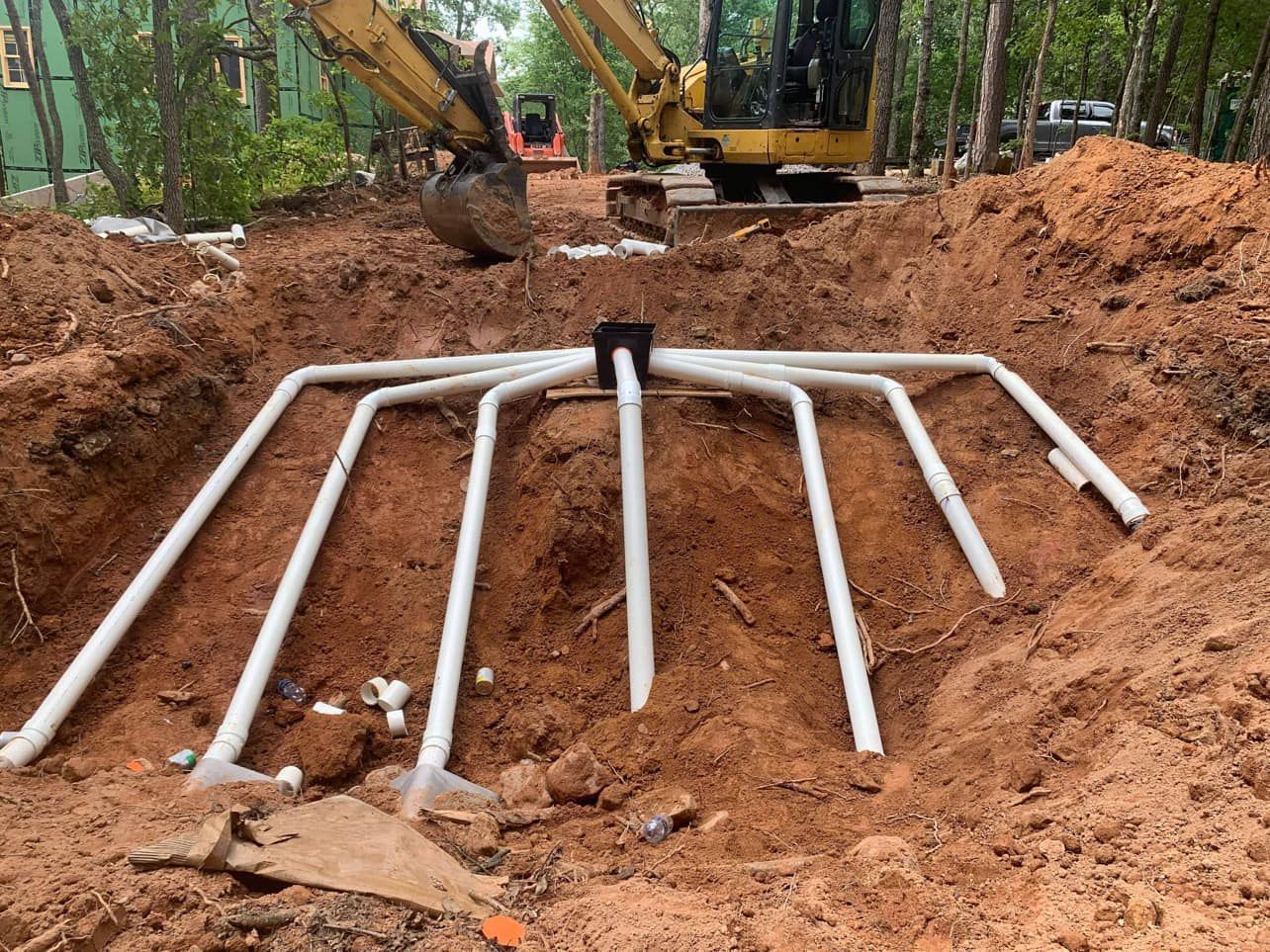
Biological Treatment
The MBR process begins with the biological treatment stage. This stage is similar to conventional treatment methods. Wastewater enters the bioreactor. Microorganisms, such as bacteria and fungi, break down organic matter in the wastewater. These microorganisms consume organic pollutants. They convert them into harmless byproducts, such as carbon dioxide and water.
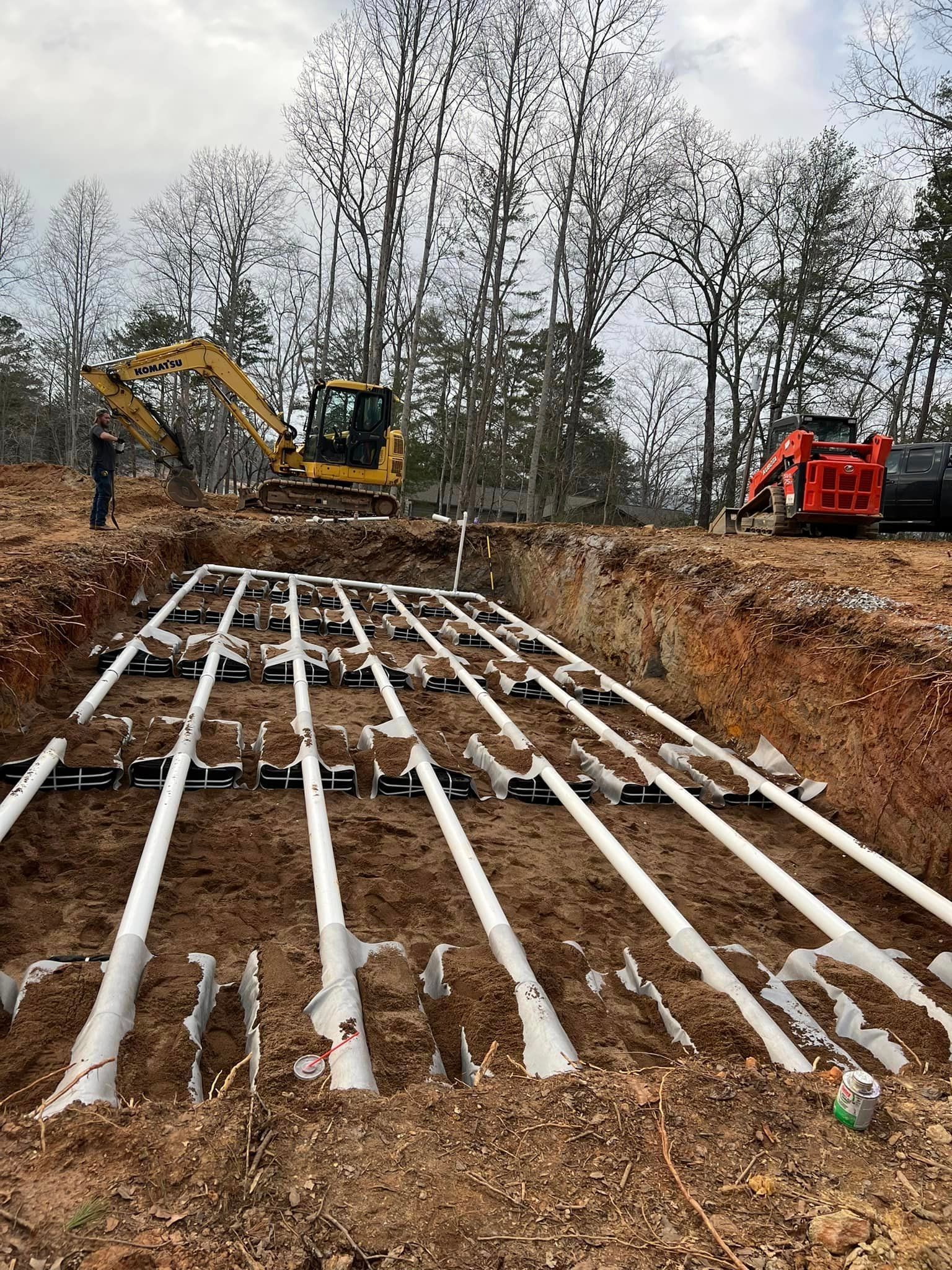
Membrane Filtration
Following biological treatment, wastewater undergoes membrane filtration in Membrane Bioreactors (MBRs). Typically composed of polymeric or ceramic materials, these membranes feature microscopic pores, allowing water molecules to pass while retaining solids and microorganisms. Serving as a physical barrier, the membranes, with pore sizes as small as 0.1 micrometers, effectively ensure the removal of even the smallest particles and microorganisms.
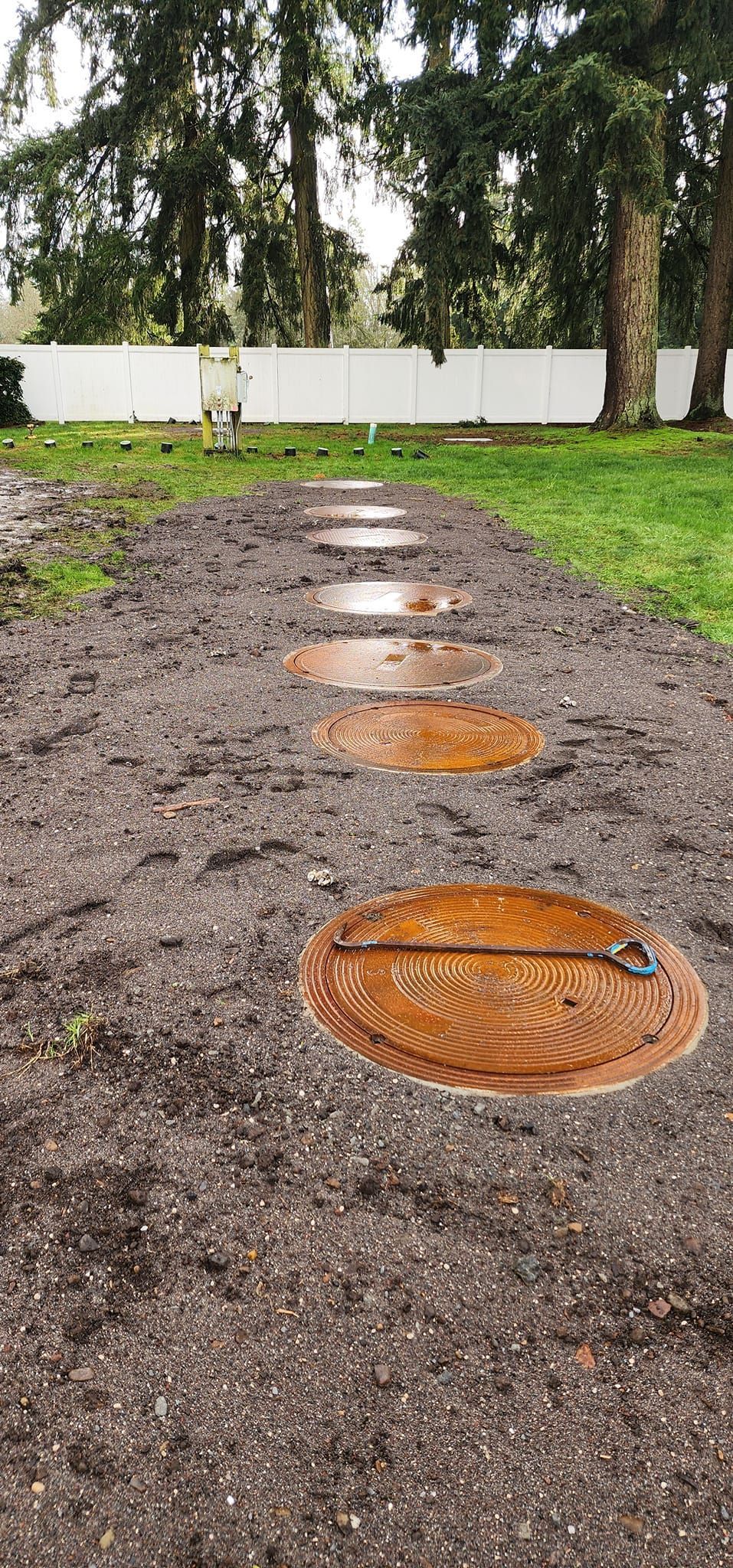
Permeate Collection
As the wastewater passes through the membranes, clean water molecules - known as permeate - pass through the membrane pores. They then collect on the other side. The permeate is collected and directed towards further treatment. It can also be discharged as high-quality effluent. This depends on the specific requirements and regulations.
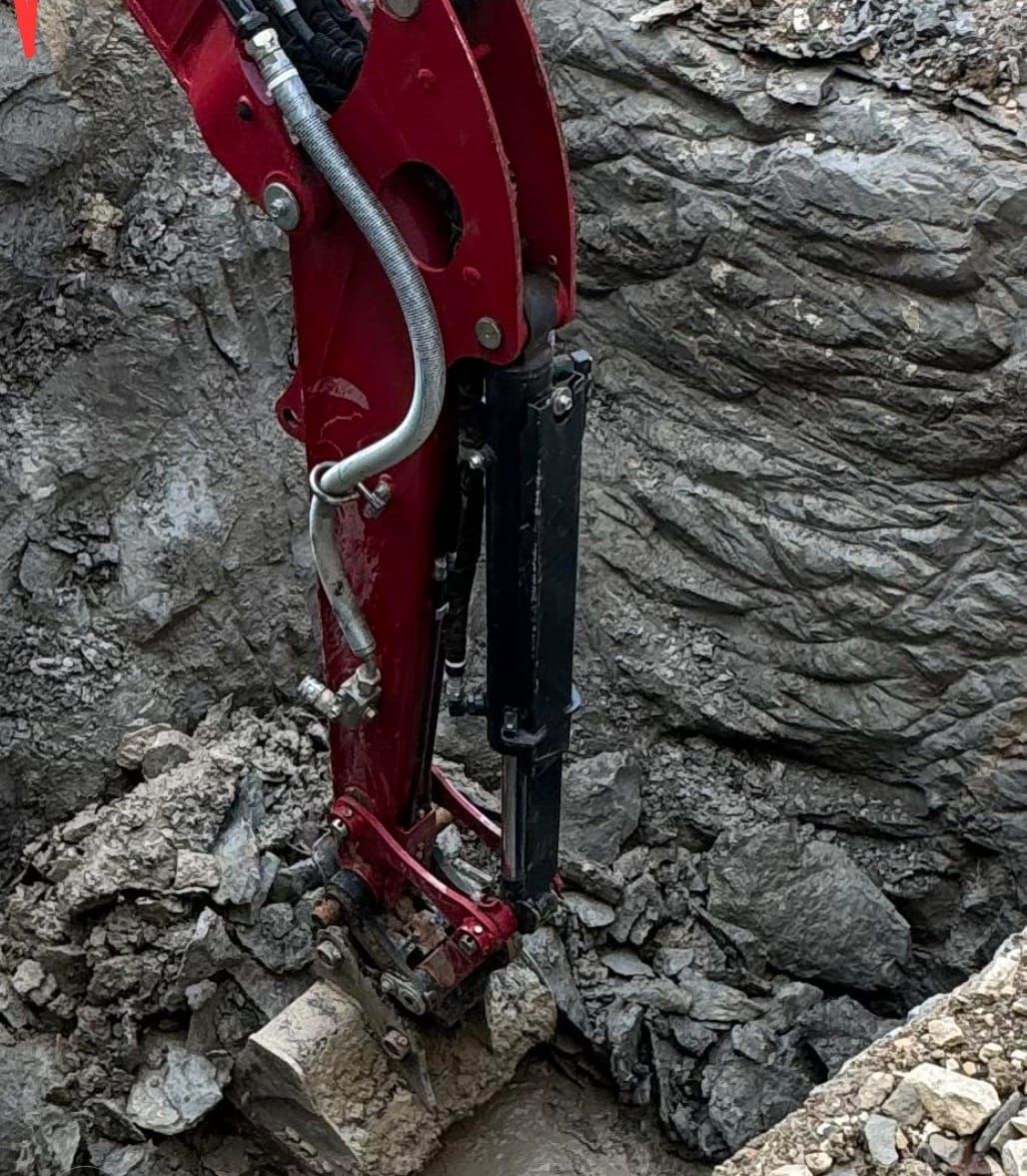
Solids & Microorganisms Retention
The solids, microorganisms, and other contaminants that are unable to pass through the membrane pores are retained on the feed side of the membrane. These retained solids form a concentrated sludge known as the "concentrate" or "retentate." Periodically remove the concentrate from the system. This maintains the efficiency of the membranes and prevents fouling.
MBR Installation and Maintenance
At EWS Septic, we have extensive experience and expertise in installing and maintaining Membrane Bioreactor systems. Our team of skilled professionals is well-versed in the intricacies of MBR technology. They can ensure a seamless installation process.
We also offer regular maintenance services to keep your MBR system running smoothly and efficiently.
Membrane Bioreactor Cost
When considering the implementation of an MBR system, it's important to understand the cost considerations. MBRs offer long-term cost savings, though the initial investment may be higher than traditional systems. These savings come from reduced maintenance and operational costs. There are also potential incentives and rebates for using advanced wastewater treatment technologies.
Our team at EWS Septic can provide you with a detailed cost analysis and help you determine the potential return on investment.
Advantages of Membrane Bioreactor
Choosing a Membrane Bioreactor system for your septic needs comes with several advantages. Let's explore some of the key benefits:
Enhanced Treatment Efficiency
MBRs offer superior treatment efficiency compared to conventional systems. The membrane filtration process effectively removes suspended solids, pathogens, and other contaminants. This results in cleaner and clearer water.
Compact Design
MBRs have a smaller footprint compared to traditional treatment systems. This makes them ideal for areas with limited space or where land availability is a concern. The compact design also allows for flexibility in system installation.
Flexibility and Scalability
MBRs offer flexibility and scalability in wastewater treatment. They can be easily expanded or modified to accommodate changing treatment needs or increased wastewater volumes. This adaptability makes MBRs a sustainable and future-proof solution.
Reduced Sludge Production
MBRs generate less sludge compared to conventional treatment methods. This reduces sludge disposal costs and minimizes the environmental impact. The reduced sludge production is achieved through the retention of solids within the membrane system.
Improved Nutrient Removal
MBRs are highly effective in removing nutrients, such as nitrogen and phosphorus, from wastewater. This is crucial in preventing water pollution. It protects sensitive ecosystems, such as rivers, lakes, and coastal areas.
Membrane Bioreactor FAQs
-
How does an MBR differ from conventional biological treatment systems?
Membrane Bioreactors (MBRs) differ from conventional biological treatment systems. They combine biological processes with membrane filtration. MBRs use membranes to separate solids and microorganisms from the treated water. This results in higher quality effluent compared to traditional systems.
-
What is the lifespan of membrane components in an MBR system?
The lifespan of membrane components in an MBR system can vary. The quality of the membranes, operating conditions, and maintenance practices determine this. Generally, with proper care and maintenance, membranes can last anywhere from 5 to 15 years.
-
How does membrane fouling impact the performance of an MBR, and how is it addressed?
Membrane fouling occurs when particles and substances accumulate on the surface of the membranes. This reduces their efficiency and performance. It can lead to decreased permeability and increased energy consumption. To address membrane fouling, regular cleaning and maintenance are required. This may involve chemical cleaning, backwashing, or air scouring. These methods remove accumulated fouling substances.
-
What maintenance requirements are associated with Membrane Bioreactor systems?
Membrane Bioreactor systems require regular maintenance to ensure optimal performance. This includes monitoring and cleaning the membranes. It also involves checking and adjusting the system's operating parameters. Lastly, it involves inspecting and maintaining the associated equipment, such as pumps and valves. It is recommended to have a maintenance schedule in place to address these requirements.
Schedule Now
Reach out to us for immediate help with your membrane bioreactor
Choose EWS Septic for superior membrane bioreactor services. Benefit from our expertise, professionalism, and comprehensive solutions in resolving septic issues.
Contact us now to schedule efficient service or gather more information about our dedicated offerings. We're committed to addressing your septic concerns with excellence and reliability.
All Rights Reserved | EWS Septic

